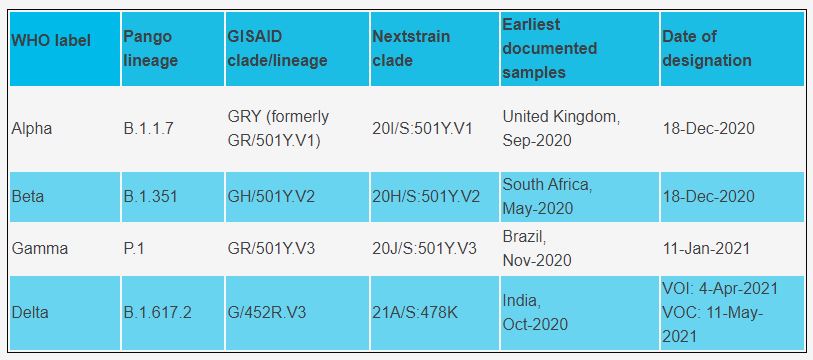Variants of the coronavirus are being re-designated with new labels by the World Health Organisation (WHO).
It means that all strains can now be referred to by letters of the Greek alphabet, instead of their place of first detection.
The variants are named alphabetically, depending on their date of discovery.
Strains of the so-called UK variant B.1.1.7, first discovered in December 2020, is now known as Alpha.
While the so-called Indian variant B.1.617.2, the most recent from April 2021, is called Delta.
 Source: WHO
Source: WHOA similar approach is also being taken with variants of interest, which will be posted on the WHO website.
The WHO says these labels were chosen after wide consultation and a review of many potential naming systems.
These labels do not replace existing scientific names.
But the WHO says while they have their advantages, scientific names can be difficult to say and are prone to misreporting.
"As a result, people often resort to calling variants by the places where they are detected, which is stigmatising and discriminatory.
"To avoid this and to simplify public communications, WHO encourages national authorities, media outlets and others to adopt these new labels", the health body says.









